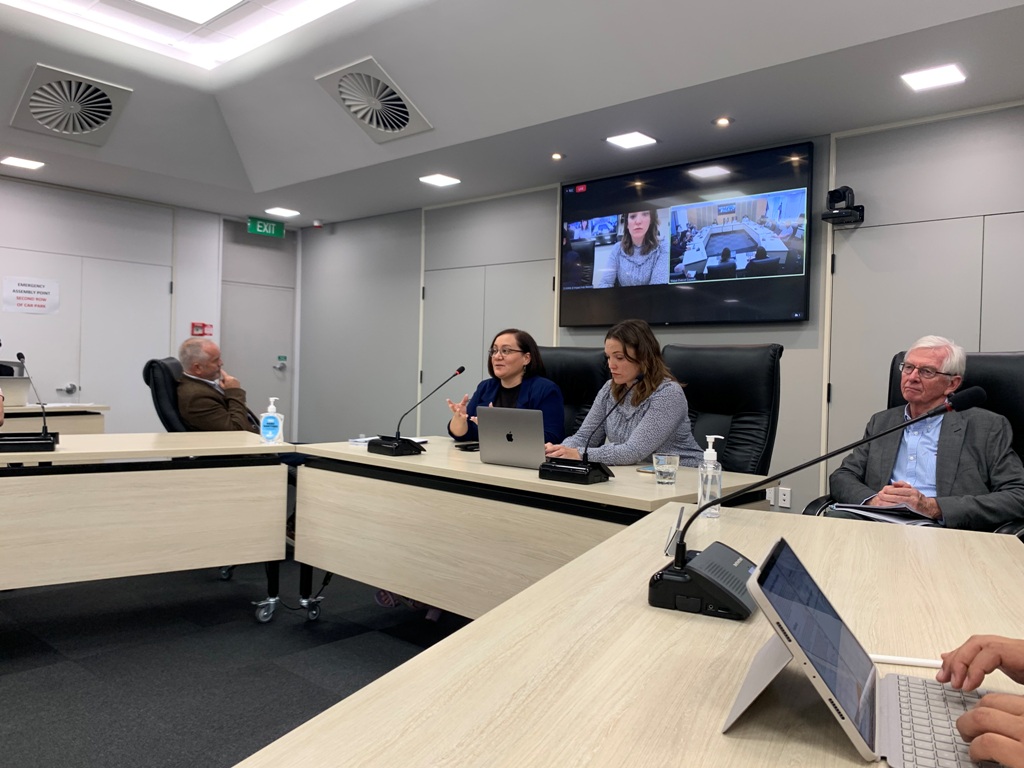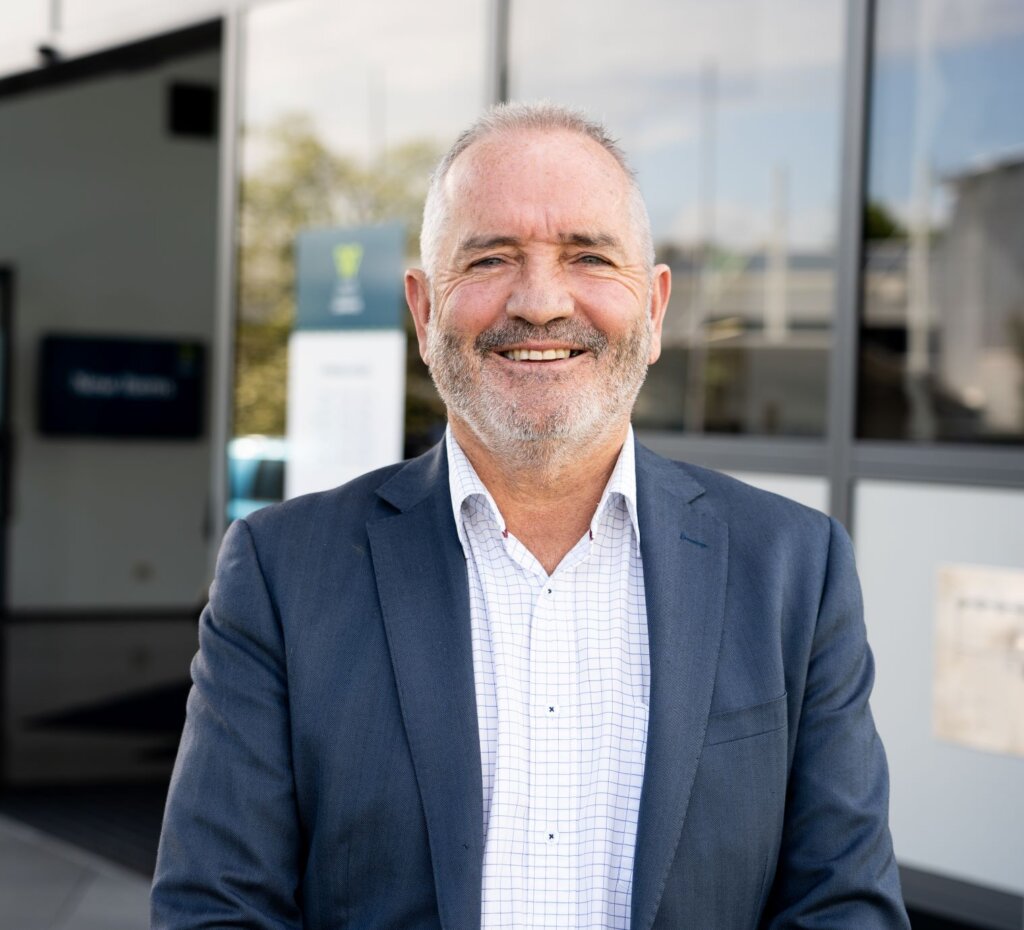
Te Awamutu Chamber of Commerce chief executive Shane Walsh, left, watches the powerpoint presentation from Impact Hub co-founder and director Nanise Ginnen and shareholder Emma Emery-Sinclair while Waipa Economic Development manager Steve Tritt watches on.
A feasibility study presented to Waipā’s Strategy Planning and Policy committee this week to establish a youth business incubator hub in Te Awamutu lacked key information needed to obtain council funding.
The proposal has the backing of the Te Awamutu Chamber of Commerce but committee chair Liz Stolwyk told its chief executive Shane Walsh while councillors could see the opportunity, there was not enough information for council to provide $65,000 a year over three years.
“We need to see a business case, kpis [key performance indicators] around that, financials etc… all that you need in a feasibility study,” she said.
Earlier this year, the chamber was granted $15,000 by the council from its Economic Development Activity budget to produce a feasibility study.

Steve Tritt
Council’s Business Development manager Steve Tritt provided guidance and liaison to the chamber and was present in support at the meeting. The chamber engaged Impact Hub Waikato to complete the feasibility study as it had already established an incubator hub in Tokoroa.
Walsh said operational funding had been secured from Trust Waikato and with evidence of community support from the council, the project could start immediately and more ongoing funding secured.
A building with a big space had been found in Te Awamutu and was available he said. The News understands the building is the former Brent Kelly Law Office in Market Street.
The chamber would move into the building and provide support, guidance and oversight, Walsh told the meeting.
After a presentation by Impact Hub co-founder and director Nanise Ginnen and shareholder Emma Emery-Sinclair, Walsh became frustrated when it appeared likely the council would not fund it.

Shane Walsh
“This is the third time we’ve come to council,” he said. “If we want to do something about youth in Te Awamutu, it’s on a platter.
“These girls work really, really hard. They’ve got other things they can be doing,” he said.
“We would rather have a quick no, than a drawn out no.”
Emery-Sinclair, founder of the now defunct Emma’s Food Bag, said the proposal did rely on support from the council. The hub would be financially sustainable in its own right within three to five years, she said.
Stolwyk said the council had funded a feasibility study and it was not what they got… “you can sense our frustration”.
She said the chamber had to identify other funding sources and sponsorship opportunities. Ginnen said they could provide a full disclosure of financials but not in a public setting.
The study said the business hub would have an emphasis on professional and youth development in Te Awamutu and support the whole Waipā district.

Kelly Bouzaid
Cambridge Chamber of Commerce chief executive Kelly Bouzaid said after the meeting there was a need to develop a youth strategy and support school leavers to find their pathway with meaningful employment or entrepreneurial aspirations.
“What has been highlighted at this stage in my mind is that there are number of organisations within our district that are dedicated to our youth and a collaborative approach would be a good starting point,” she said.









